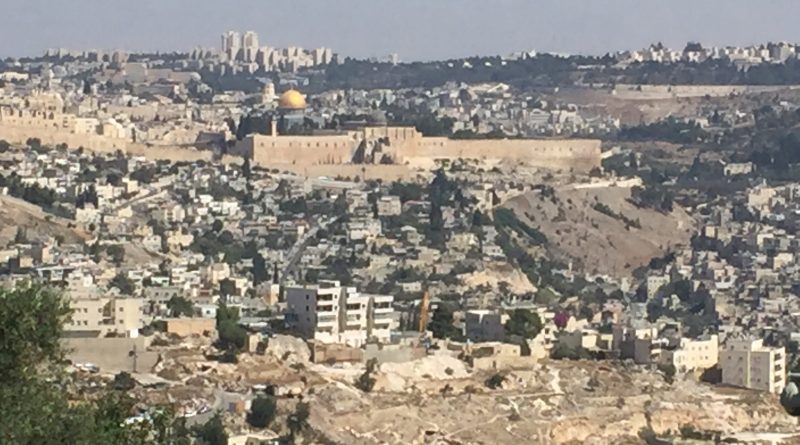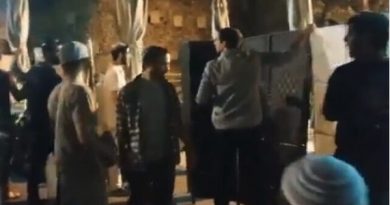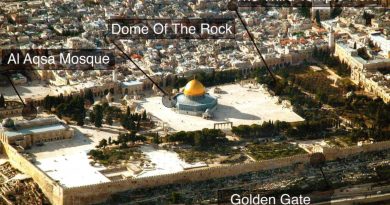Tisha b’Av 5782
Should we still be fasting on Tisha b’Av?
Tisha b’Av is the saddest day of the year on the Jewish calendar. On that day we mark many different disasters that have befallen the Jewish people over time: the destruction of the Temple in Jerusalem (twice), the crushing of the Bar Kochba revolt in 135 CE, the expulsion of the Jews from Spain in 1492. It’s also the day that Duke Ferdinand was assassinated, setting in motion the events that led to WWI, WWII, and the Shoah.
We read the Book of Lamentations on Tisha b’Av, a book that describes Jerusalem as a forlorn and desolate place. Tisha b’Av is treated as a severe day of mourning, lamenting over the destruction of the Temple and the destruction of the city. For thousands of years our ancestors had this lament.
For centuries, the lamenting over the fall of Jerusalem wasn’t even limited to Tisha b’Av. William Seward, US Secretary of State under President Lincoln, visited Israel in 1870 as a part of an around the world voyage that he chronicled in a book. He visited the Western Wall and said that the Ottoman authorities only allowed the Jews to visit the Western Wall one day a week, on Friday. He said they were “pouring out their lamentations over the fall of their beloved city, and praying for its restoration to the Lord.” He described the scene as follows:
They come together at an early hour, old and young, men, women, and little children – the poor and the rich, in their best costumes, discordant as the diverse nations from which they come.
They are attended by their rabbis, each bringing the carefully preserved and elaborately bound text of the book of the Lamentations of Jeremiah, either in their respective languages, or in the original Hebrew. For many hours they pour forth their complaints, reading and reciting the poetic language of the prophet, beating their hands against the wall, and bathing the stones with their kisses and tears. It is no mere formal ceremony. During the several hours while we were spectators of it, there was not one act of irreverence or indifference.
I have a very hard time getting into the spirit of the day on Tisha b’Av, especially when I’m in Jerusalem. The synagogue I belong to in Jerusalem holds Erev Tisha b’Av services on the Tayelet, near where I live, a promenade with an amazing view of the old city and the Dome of the Rock.
I no longer join in for the reading of Lamentations when I’m in Israel. The cognitive dissonance is just too high. In the opening chapter of Lamentations we read these words:
Zion’s roads are in mourning,
Empty of festival pilgrims;
All her gates are deserted.
Her priests sigh,
Her maidens are unhappy—
She is utterly disconsolate!Her enemies are now the masters,
Her foes are at ease,
Because the LORD has afflicted her
For her many transgressions;
Her infants have gone into captivity
Before the enemy.
I find I simply cannot recite those words anymore when I’m in Jerusalem. Yes, I may be looking out at the Temple Mount where now stands a mosque in the place of our holy temple, but the gates of Jerusalem are certainly not deserted. Her maidens are not unhappy – I suppose my daughters count as the maidens of Jerusalem now, and they are quite happy, and enjoy living in the beautiful, dynamic, very much alive city of Jerusalem today.
So instead of sitting with my fellow congregants and chanting those mournful words, I go off and sit by myself and pray and think.
My colleague and classmate Rabbi Daniel Greyber wrote an article for The Forward a few years ago in which he asked, “Should We Transform Tisha b’Av from Fast to Feast?”
He was in Israel serving as Team Rabbi for the US delegation to the Maccabiah Games. Tisha b’Av fell during the program. There were 800 young athletes on the program, only 15 of whom were going to fast. The other 775 spent the evening in Bedouin tents eating and dancing. Rabbi Greyber wrote,
So I started my fast in surreal conditions, surrounded by hundreds of happy young Jewish adults, all sitting down to feast. In principal, I was observing the holiday, and they were violating its mandate to mourn. But in the context of modern Israel, it’s hard not to wonder if the opposite is true, and if the young athletes had it right.
In his article he shares a lesson from our teacher, Talmud scholar Moshe Benovitz, who is a Zionist who celebrates Yom Haatzmaut, Israel’s Independence Day. Benovitz argues that a holiday such as Yom Haatzmaut is not the traditional Jewish way to celebrate the return of the Jewish people to their land. He argues that instead of creating a new holiday,Tisha b’Av should be turned into a day of feasting and joy.
The prophet Zechariah, writing after the destruction of the First Temple in the 6th century BCE, predicted that in the future Israel’s fast days “will be for the house of Judah joy and gladness.”
When does that happen? When Jews are again sovereign in the land of Israel – as we are now! Benovitz argues that since we do have a state of our own again, we are living in the messianic era.
There is an argument in the Talmud that agrees with Benovitz. According to one rabbi in the Talmud the only difference between “these days” and the “days of the Messiah” is that Israel will no longer be under foreign domination. Well, Israel is no longer under foreign domination. Does that mean David Ben-Gurion was the Messiah?
No, and I’ll tell you why.
It’s the same reason Jews don’t believe that Jesus was the Messiah.
The world we live in is still a very broken place.
There’s too much violence, too much hatred, too much division, too much poverty. Even here in Canada, antisemitic hate crimes are up 20% in the last year.
Rabbi David Hartman, z”l, said that the Messiah is not so much a prediction for the future as it is a critique of the present. The idea of the Messianic Age, a time when there is peace and prosperity around the globe, gives us a vision to aim for. It shows us how far we have to go in the work of making our world a better place.
Rebbe Nachman of Bretslav taught that we all have an aspect of the Messiah within us. I would take that further, and say that the Messiah is not just any one individual who will come along and magically lead us to that Golden Age. We are, collectively, the Messiah. We have to do the work of fixing the world.
I will be fasting starting tonight, not because I am in mourning for the destruction of the Temple, but because I am saddened by the reality in which we are living. I will be fasting to arouse the Messiah within me to get busy and do more to make the world a better place for my children and grandchildren.
I will pray for the restoration of the Temple, but not to bring back the “holy barbeque.” The prophet Isaiah said, “they shall not hurt nor destroy in all My holy mountain,” and he sees God saying, “My house shall be a House of Prayer.”
The way I will know the Messiah has come is when our cousins, the Muslims, invite us to build our Temple, God’s House of Prayer, on the Temple Mount right next to the Dome of the Rock.
I don’t expect that to happen any time soon. There’s a story told about the people of the town of Chelm, that they hired a night watchman to stay awake all night, so that if the Messiah came, he could run around and tell everyone the good news. They say the job didn’t pay very well, but it was steady work.
But I also believe, as Maimonides said, “though he may tarry I believe with emunah shleimah, with complete faith, in the coming of the Messiah.”
Things are a lot better than they were 100 years ago. We do have the State of Israel, which is an amazing blessing, something our ancestors only dreamed of for nearly 2,000 years.
But we still have a lot of work to do.



